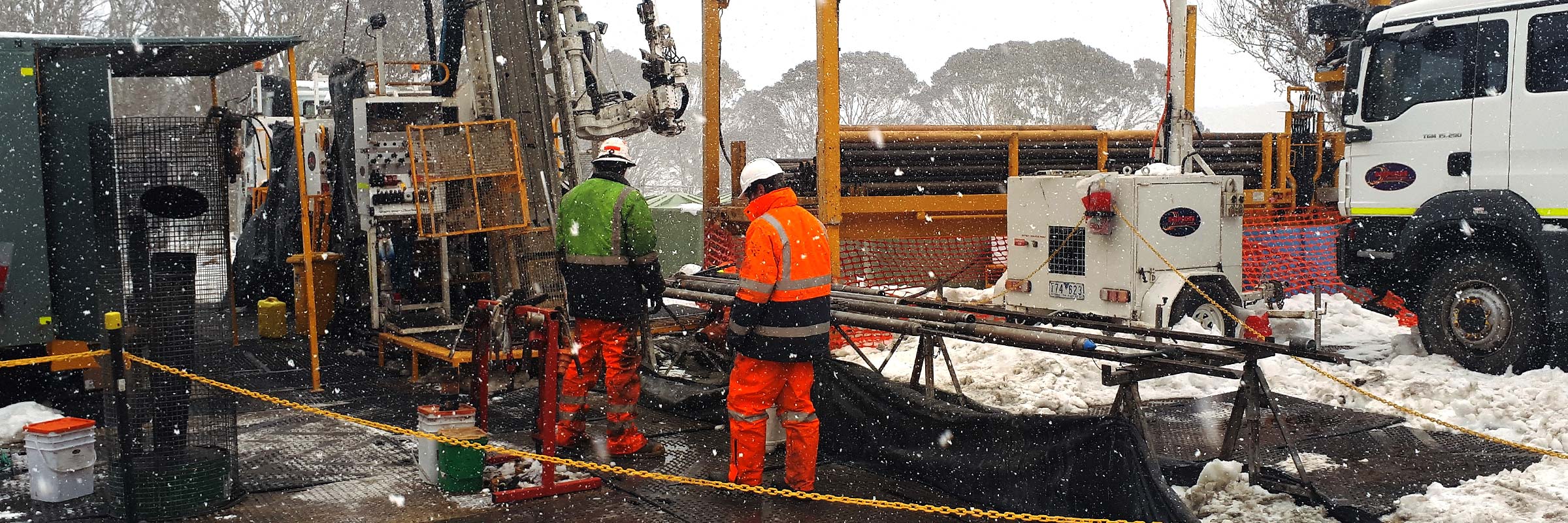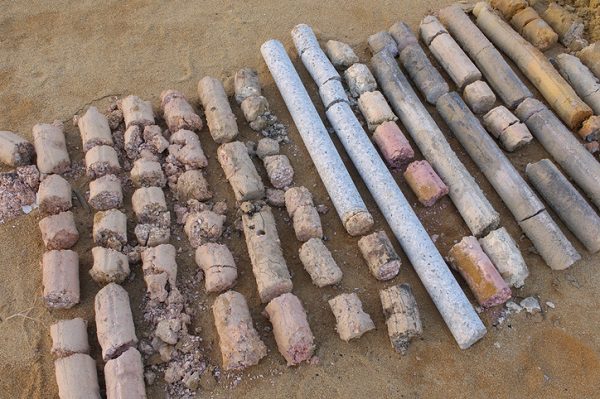Everything You Need to Understand About Geotechnical Engineering for Your Following Task
Everything You Need to Understand About Geotechnical Engineering for Your Following Task
Blog Article
The Importance of Geotechnical Engineering in Attending To Environmental Challenges and Enhancing Construction Safety And Security
Geotechnical engineering offers as a cornerstone in the crossway of environmental stewardship and building safety, offering essential insights right into the habits of soil and rock under different conditions. By carrying out critical website investigations and customized reduction steps, geotechnical engineers play an essential duty in safeguarding both human lives and ecological honesty.

Role of Geotechnical Design
Geotechnical engineering plays a critical function in the layout and construction of infrastructure by resolving the habits of dirt and rock products under various problems. This field of design is essential for understanding the interaction between structures and the ground, which consists of establishing the load-bearing capacity of soil, assessing stability, and anticipating potential settlement or failing.
Geotechnical engineers are accountable for carrying out website investigations, which involve tasting and screening soil and rock to collect information on their chemical and physical properties. This info is crucial for creating structures, maintaining walls, and various other earth-retaining frameworks that ensure security and longevity. In addition, geotechnical engineering educates the selection of suitable building methods and products, thus lessening risks connected with soil actions.
In addition, the assimilation of geotechnical design concepts right into city preparation and environmental administration is vital for addressing challenges such as ground contamination and groundwater management. By comprehending geotechnical factors, designers can develop sustainable remedies that boost the resilience of facilities against all-natural threats, while additionally promoting ecological stewardship. Eventually, the function of geotechnical engineering is crucial for achieving risk-free, long lasting, and eco conscious construction practices.
Soil Erosion Reduction
Dirt erosion postures a substantial danger to both environmental security and facilities honesty, affecting about 24 billion lots of productive dirt lost each year worldwide. This sensation is worsened by factors such as deforestation, urbanization, and inadequate farming practices. Geotechnical engineering plays a critical duty in developing effective dirt erosion mitigation techniques that safeguard both the environment and construction projects.
One strategy involves the implementation of disintegration control methods such as greenery planting, which supports dirt via root systems. Furthermore, the building of retaining balconies and wall surfaces can successfully reduce surface runoff and protect at risk locations from disintegration. Correct drain design is additionally important; it minimizes water build-up and directs excess overflow far from important frameworks.
In addition, geotechnical engineers employ dirt stabilization strategies, such as the application of geotextiles and biodegradable mats, to enhance soil cohesion and prevent deterioration - all about geotechnical engineering. Routine surveillance and evaluation of erosion-prone websites enable prompt treatments, making certain long-lasting sustainability. By integrating these approaches, geotechnical engineering not only reduces the impacts of soil erosion yet additionally contributes to the strength of framework versus ecological challenges, eventually cultivating a more secure and a lot more lasting developed atmosphere
Groundwater Protection Methods
Groundwater functions as a vital resource for drinking water, agriculture, and industrial processes, making its protection necessary for ecological sustainability and public health and wellness. Efficient groundwater protection techniques are essential in mitigating contamination risks and making sure the long life of this source.

Routine surveillance of groundwater quality is likewise important, enabling very early detection of contamination resources and promoting prompt removal initiatives. Employing sophisticated innovations, such as geophysical surveys and remote sensing, aids in determining prospective dangers to groundwater gets.
Additionally, public education and learning and stakeholder involvement are essential, promoting community assistance why not try here for groundwater security initiatives. geotechnical specialist. By combining governing measures, technical advancements, and area participation, we can develop an extensive framework that safeguards groundwater sources while advertising sustainable advancement and building and construction techniques
Landslide Risk Monitoring
Landslides position considerable threats to both human safety and framework, making efficient threat management techniques important. Geotechnical engineering plays a crucial role in recognizing, examining, and mitigating landslide threats. An extensive understanding of slope stability, dirt mechanics, and hydrology is crucial for developing reliable danger management plans.
The first action in landslide danger administration entails extensive site investigations, which include geological mapping and soil testing. These examinations help engineers review the possibility for landslides by determining essential variables such as slope angles, dirt composition, and water content. Using advanced innovations such as remote picking up and geophysical studies can enhance the accuracy of these assessments.
When risks are determined, suitable mitigation procedures can be applied. These might consist of engineering remedies such as preserving wall surfaces, water drainage systems, and slope stabilization methods. Moreover, monitoring systems ought to be developed to detect indicators of ground activity and modifications in water degrees, permitting positive interventions.

Enhancing Building Security
Building sites often provide a myriad of dangers that can endanger employee security and project integrity. Geotechnical engineering plays a critical role in enhancing building and construction safety and security by supplying essential understandings into subsurface problems. Via thorough dirt and rock analysis, geotechnical engineers can identify possible threats, such as dirt instability, groundwater concerns, and seismic vulnerabilities, which may jeopardize the safety of building tasks.
Carrying out geotechnical remedies, such as correct foundation design and the use of keeping frameworks, reduces these dangers significantly. These services not just guarantee the stability of the frameworks being developed however likewise produce a more secure working atmosphere for building employees. Additionally, rigorous monitoring and evaluation of site problems throughout the building process are essential. Utilizing advanced technologies like ground-penetrating radar and inclinometer systems allows real-time information collection, allowing for timely interventions when risks are found.
Furthermore, promoting a society of safety and security via training and adherence to developed security methods further improves building website safety and security. By incorporating geotechnical knowledge right into the planning and implementation stages, construction jobs can accomplish greater safety standards, inevitably protecting workers and making certain successful task conclusion.
Verdict
In conclusion, geotechnical engineering offers as a vital technique in promoting and dealing with environmental challenges building security. Through effective dirt disintegration mitigation, groundwater protection methods, and landslide danger management, geotechnical designers add to the development of resistant framework. The combination of these techniques fosters a safer building and construction atmosphere and boosts the sustainability of civil engineering tasks. Ultimately, the experience of geotechnical designers is crucial in guarding both all-natural resources and human lives versus prospective hazards.
Geotechnical engineering offers as special info a foundation in the junction of environmental stewardship and building safety and security, offering critical understandings right into the behavior of dirt and rock under various problems. Geotechnical engineering informs the option of appropriate construction methods and materials, thus lessening threats associated with soil habits.
Geotechnical design plays a pivotal function in creating reliable dirt erosion mitigation techniques that secure both the setting and building and visit site construction projects.
Furthermore, geotechnical engineers utilize dirt stablizing strategies, such as the application of geotextiles and eco-friendly floor coverings, to enhance soil communication and avoid deterioration. With detailed dirt and rock analysis, geotechnical engineers can determine prospective dangers, such as soil instability, groundwater problems, and seismic susceptabilities, which may jeopardize the security of building activities.
Report this page